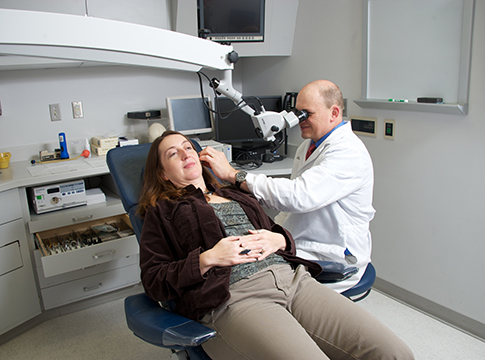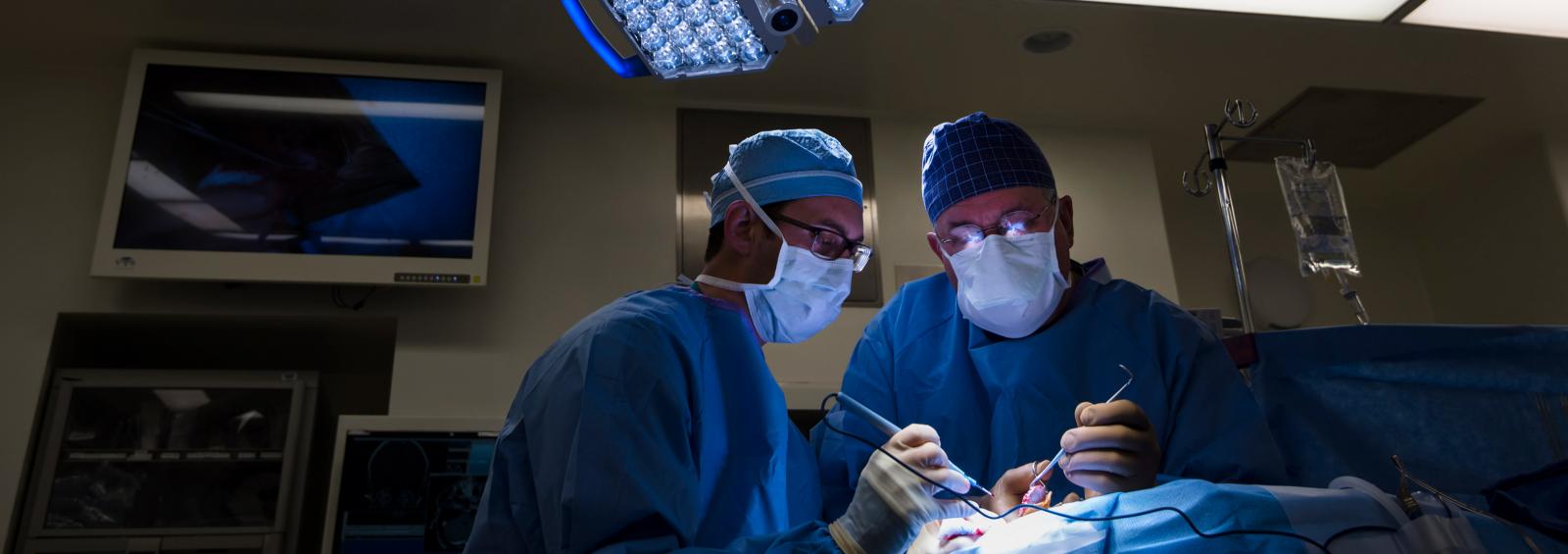Key Signs You Should Visit a Sinus Expert Today
Key Signs You Should Visit a Sinus Expert Today
Blog Article
Exploring the Area of Otolaryngology: What to Anticipate When You Get In Touch With an ENT
Otolaryngology, frequently described as ENT, encompasses the diagnosis and treatment of ear, nose, and throat conditions. For those experiencing associated concerns, consulting an ENT expert can provide clearness and alleviation. Comprehending what to anticipate during such examinations is crucial for effective interaction and care. This overview will certainly detail essential aspects of the ENT experience, including common reasons for visits and the procedures entailed in medical diagnosis and therapy.

Recognizing Otolaryngology: A Summary
Otolaryngology, frequently described as ENT (Throat, nose, and ear) medication, is a customized branch of medication that concentrates on the medical diagnosis and therapy of problems impacting these crucial areas of the body. This field encompasses a large range of problems, consisting of those related to hearing, equilibrium, breathing feature, and speech. Otolaryngologists are educated to manage both surgical and clinical therapies, utilizing innovative techniques and technologies. Their experience extends beyond conventional ailments, dealing with concerns such as allergies, sinus infections, and hearing loss. Furthermore, they play an essential function in the monitoring of head and neck cancers cells, providing complete treatment customized to specific client requirements. Overall, otolaryngology continues to be vital for maintaining health and lifestyle in affected people.
Common Factors to See an ENT Expert
Lots of people look for the proficiency of an ENT specialist for a variety of reasons, mirroring the varied nature of conditions that influence the throat, ear, and nose. Common problems consist of chronic sinus problems, which frequently brings about relentless nasal blockage and facial pain. Allergies and their connected symptoms, such as sneezing and itching, additionally prompt brows through to these professionals (Otolaryngologist). Hearing loss, whether unexpected or steady, is one more significant reason for appointment. On top of that, people may seek examination for throat disorders, including relentless hoarseness or swallowing difficulties. Sleep apnea, characterized by cut off breathing during rest, is frequently addressed by ENT professionals. Each of these problems highlights the relevance of specialized treatment in taking care of intricate ENT-related wellness problems
Planning for Your ENT Consultation
When planning for an ENT appointment, it is vital to collect pertinent information and think about any kind of certain concerns. Patients should compile a thorough case history, consisting of previous ear, nose, or throat issues, surgical treatments, and existing medicines. Recording signs-- such as duration, seriousness, and regularity-- can provide important insights for the ENT professional. Furthermore, people ought to prepare a list of concerns they desire to ask, ensuring that all worries are attended to during the go to. Bringing along any kind of pertinent clinical records or test outcomes can additionally aid the ENT in recognizing the individual's problem. Ultimately, patients need to confirm their consultation details, including time, day, and place, to reduce any final confusion. Appropriate preparation can improve the performance of the assessment and result in better outcomes.
What to Expect Throughout the Assessment
As the assessment starts, the person can expect to take part in a thorough discussion with the ENT professional concerning their signs and medical history. The specialist will certainly ask about the period, frequency, and severity of symptoms such as hearing loss, nasal congestion, or aching throat. Additionally, the person's previous clinical conditions, medicines, and any pertinent family history will certainly be evaluated, assisting the specialist in developing a total understanding of the person's wellness. The ENT may additionally ask regarding way of living aspects, such as exposure to irritants or irritants. This open discussion establishes a foundation for the appointment, ensuring that the patient's worries are attended to and setting the phase for any type of required examinations or referrals for treatment.
Diagnostic Tests and Treatments in Otolaryngology
An array of analysis examinations and treatments are important in otolaryngology to precisely evaluate and identify conditions influencing the ear, throat, and nose. Typical tests include audiometry, which determines hearing feature, and tympanometry, examining middle ear stress. Nasal endoscopy permits visualization of the nasal flows and sinuses, while laryngoscopy checks out the throat and vocal cords. Imaging techniques, such as CT scans and MRIs, offer thorough sights of head and neck structures. Allergy screening may likewise be performed to recognize triggers for sinus or respiratory system concerns. These diagnostic devices make it possible for ENT specialists to establish a detailed understanding of people' conditions, making sure tailored and efficient monitoring plans. Appropriate medical diagnosis is essential for successful treatment results in otolaryngology.
Treatment Alternatives Used by ENT Specialists
ENT experts offer a selection of treatment options tailored to resolve specific problems affecting the nose, ear, and throat. These treatments vary from conventional strategies, such as medication and lifestyle modifications, to more invasive procedures. As an example, allergic reactions may be managed with antihistamines or immunotherapy, while chronic sinus problems might need nasal corticosteroids or sinus surgical treatment. For hearing loss, ENT professionals usually suggest listening devices or wikipedia reference medical interventions like cochlear implants. In cases of throat problems, alternatives can include speech therapy or operations to get rid of obstructions. Furthermore, they might provide advice for managing rest apnea, including the usage of CPAP gadgets or surgical interventions. In general, the objective is to improve clients' lifestyle through customized treatment and effective therapy strategies.
When to Look For Follow-Up Treatment With an ENT
Recognizing when to seek follow-up care with an ENT expert is important for taking care of ongoing symptoms or complications associated with throat, nose, and ear problems. Patients ought to take into consideration arranging a follow-up visit if signs and symptoms persist in spite of first therapy, such as chronic ear pain, nasal congestion, or throat discomfort. Adjustments in hearing, balance concerns, or uncommon nasal discharge may additionally necessitate further analysis. In addition, if a person experiences negative effects from recommended drugs or has undertaken a surgery, follow-up treatment is very important to monitor healing and address any concerns. Timely examinations can guarantee reliable management of problems, prevent potential issues, and provide satisfaction concerning one's health. Seeking follow-up care promotes positive wellness monitoring in otolaryngology.
Frequently Asked Concerns

What Qualifications Should I Look for in an ENT Specialist?
When looking for an ENT expert, one must search for board qualification, appropriate experience, and solid individual reviews. Additionally, reliable interaction skills and a caring strategy can considerably boost the general treatment experience.
How Do I Pick the Right ENT for My Needs?
Choosing the appropriate ENT expert involves evaluating their certifications, experience, and individual reviews (Hearing). It is necessary to consider their interaction style and strategy to treatment, ensuring they align with the individual's specific health and wellness demands and choices
Exist Any Kind Of Threats Related To ENT Procedures?
The dangers related to ENT treatments might consist of infection, blood loss, anesthesia problems, and possible damages to surrounding frameworks. Individuals should talk about these threats with their medical professional to comprehend specific issues and warranty notified decisions.
Just How Can I Take Care Of Anxiety Prior To My ENT Appointment?
To handle stress and anxiety prior to a visit, people can practice deep breathing exercises, picture favorable end results, prepare questions beforehand, and look for support from good friends or household, promoting a sense of reassurance and peace.
What Should I Do if I Experience Adverse Effects From Treatment?
If adverse effects from therapy take place, the individual needs to promptly report them to their doctor. Changes to treatment or additional interventions might be needed to assure safety and security and performance in managing their condition - Hearing. As the consultation begins, the patient can expect to engage in a comprehensive conversation with the ENT specialist concerning their signs and medical history. These analysis tools make it possible for ENT specialists to create a detailed understanding of clients' conditions, making sure tailored and about his effective management plans. ENT experts supply a selection of therapy choices tailored to attend to certain problems impacting the throat, ear, and nose. When seeking an Our site ENT specialist, one need to look for board certification, relevant experience, and strong client testimonials. Choosing the appropriate ENT expert includes assessing their qualifications, experience, and individual reviews
Report this page